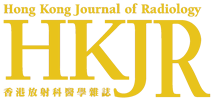Expanding Treatment Arsenal for Oestrogen Receptor–Positive Human Epidermal Growth Factor Receptor 2–Negative Metastatic Breast Cancer
H Sze
Hong Kong J Radiol 2019;22:86-97
https://doi.org/10.12809/hkjr1916852
Hormonal therapy is an established treatment for oestrogen receptor (ER)-positive, human epidermal growth factor receptor 2 (HER2)-negative metastatic breast cancer. It is the preferred treatment due to its high efficacy and good tolerability, provided there is no immediately life-threatening visceral involvement. Aromatase inhibitors (AI) have been the standard first-line therapy for postmenopausal patients because of its superiority to older generation hormone therapies such as tamoxifen and megestrol acetate. Fulvestrant, a selective ER down regulator, has been evaluated in different dosages and combinations with other agents. Recent data suggest a greater benefit when it is used early in the disease course. A better understanding of resistance to endocrine therapy has been achieved over the past decades and new drugs have been developed to tackle alternative signalling pathways. Among them, mammalian target of rapamycin (mTOR) and cyclin-dependent kinase (CDK) 4/6 inhibitors have achieved great success in improving treatment outcome. Everolimus, an mTOR inhibitor, in combination with exemestane is effective for patients whose disease has progressed on a non-steroidal AI. CDK 4/6 inhibitors including palbociclib, ribociclib and abemaciclib have shown unique clinical efficacy and are in different phases of drug development. Their emergence has redefined the treatment strategy in both the first- and second-line settings. Today, the treatment paradigm is moving away from AI monotherapy towards hormone-targeted therapy. Research is now focused on the optimal drug combination and sequencing as well as a personalised treatment approach.
Author affiliation(s):
H Sze: Department of Clinical Oncology, Pamela Youde Nethersole Eastern Hospital, Chai Wan, Hong Kong
中文摘要
雌激素受體陽性人類表皮生長因子受體2陰性轉移性乳腺癌的擴大療法
施俊健
激素療法是雌激素受體(ER)陽性人類表皮生長因子受體2(HER2)陰性轉移性乳腺癌的既定治療方法。因為它具有高效和良好耐受性,在沒有立即危及生命的內臟病灶時是優選的治療方法。芳香環酶抑製劑(AI)是停經後患者的標準一線療法,其治療效果較老一代激素療法如他莫昔芬和醋酸甲地孕酮優勝。有研究將氟維司群(一種選擇性ER下調調節劑)以不同劑量和與其他藥物組合進行評估。近來數據也表明在病程早期使用會有更佳效果。過去不少研究也對內分泌治療抗拒作出更深入的瞭解,並開發新藥作為信號傳導途徑的替代方案。其中,哺乳動物雷帕黴素靶蛋白(mTOR)和週期蛋白依賴性激酶(CDK)4/6抑製劑在改善治療效果方面取得了巨大成功。依維莫司是一種mTOR抑製劑,與依西美坦聯合使用對非甾體AI疾病進展的患者有效。包括帕博西尼、瑞博西尼和玻瑪西尼在內的CDK 4/6抑製劑已顯示獨特的臨床功效,且處於藥物開發的不同階段。他們的出現為一線和二線治療策略重新定義。今天,治療範式正從AI單一療法轉向激素靶向療法。目前的研究重點是最佳藥物組合和測序以及個性化治療方法。

